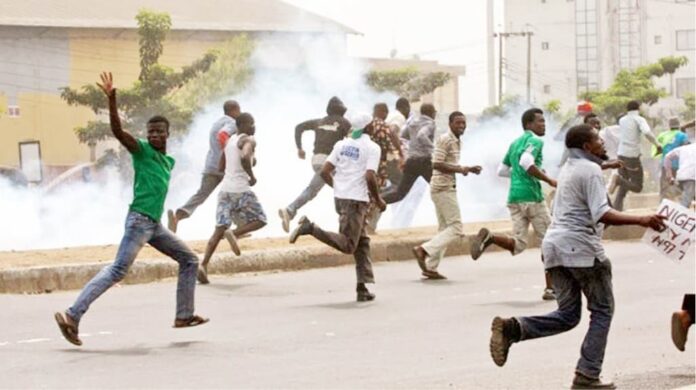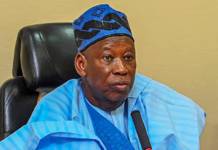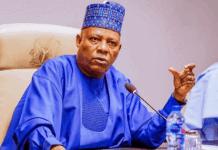•Seeks end to election atrocities
CHIGOZIE AMADI
A civil society organisation, the Global Rights, has ranked Rivers and Lagos as the worst states in Nigeria when it comes to electoral violence.
Executive Director of the group, Abiodun Baiyewu, disclosed this yesterday, in Abuja, during a national dialogue to demand accountability for documented 2023 election atrocities in Nigeria and the launch of a report titled: “In Pursuit of Justice: Forensic Insights into Nigeria’s 2023 election atrocities”.
She said since the nation’s independence, Nigeria’s election cycles have been very volatile, noting that apart from brief moments of solidarity among citizens on their desire for credible elections, the no-holds, barred contestations have made divisive rhetoric a recurring decimal.
Baiyewu, lamented that the weaponisation of words and imagery to sway emotions and drive violence had increased with each electoral cycle and the failure to make their purveyors accountable has engendered a culture of impunity, violence causing an ever-widening erosion in the nation’s social cohesion.
She pointed out that the run-up to the 2023 general election was not different in any way.
The Executive Director said besides the stakes were higher, stressing that the crises precipitated by bad governance had resulted in further polarising the polity.
She noted that every section of the country felt marginalised and excluded from enjoying the elusive “dividends of democracy.”
Baiyewu, said in this milieu, they held on desperately to their identities, while the backdrop of insecurity across the various regions of the country worsened the narratives.
Her words: “The South-east in addition to the perception of the bias of power at the center, struggled with the intergenerational trauma of the atrocities of the civil war, and the sense of exclusion was exacerbated by high-handed security responses.
“The North-east and North-west have struggled for protection from terror pillages and the political nuances around it over more than a decade. For the South-South, natural resource governance and the infusion of cult into formal political structures stoked their intractable violence.
“The South-west particularly Lagos, Nigeria’s commercial and cultural melting pot and former political capital, decapitated to the violence, against the backdrop of political parties’ thinly veiled grab for numbers, and struggled with retracting ethnic gauntlets thrown in previous elections.
“River State is the worst state when it comes to election violence in Nigeria, and the numbers speak for themselves, as is Lagos State. More recently, the entire South-east of the country. But then let us not forget what happened in the north in 2011.
“Our politicians continue to use words not to build us, not to unite us, but to divide us and we continue to allow them.”
Giving an overview of the report, the Executive Director of We The People, Kare Hemshaw, decried the increase in access to new civic spaces, in particular, social media, foddered on existing fault lines across the country and aided a spike in erosive discourse and the propagation of fake news.
He emphasised that their effect was predictable – the recurring tide of violence, hate speech, intolerance, and election-related atrocities derailed any semblance of decorum in the electioneering process.
Hemshaw, said if Nigeria intends to break the endless cycle of violence and impunity, it would need to start with curating data and analysing them for accountability.
He added that the nation’s documentation of its electoral atrocities, beyond rigging and ballot snatching, has been poor.
According to him, the documentation of election- related crimes, including arson, vandalism, physical and verbal violence, hate speech, fake news, and killings, has hitherto been very poor and uncoordinated.
Hemshaw, called for specific measures essential to enhance the independence and capabilities of electoral bodies, stressing that this includes appointing non-partisan members to electoral commissions, improving logistical and technological infrastructures, and ensuring that electoral staff receive ongoing professional training to uphold integrity and efficiency in the electoral process.
He further called for divesting INEC of the responsibility of prosecuting electoral offences, saying the commission never demonstrated capacity in carrying out this role.
Henshaw said this has created a gap as several persons who breach the provisions of the Electoral Act are not held to account, thereby denying their victims justice.

























